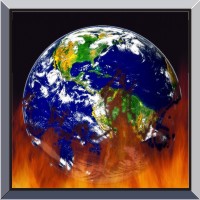 (Page last updated 6/4/20)
(Page last updated 6/4/20)
We do our best to make sure your vehicle has the least possible impact on the environment, but even in top shape, internal combustion engines emit carbon into the atmosphere. The best current science tells us that the “tipping point”, the point at which the damage of global warming will become almost impossible to reverse, is about 350 ppm (parts per million) of carbon in the atmosphere. Currently, we’re at 408 ppm (August 2018). (click here to hear NASA scientists react to passing 400ppm mark)
 In 2007 we started a program that allows our clients to make a difference by offsetting the carbon output of their vehicles and save money at the same time. As of 2020, the members of the Tom Dwyer Automotive Carbon Neutral Program (CNP) have been responsible for removing an amazing 2,100,900 pounds of carbon from our air. Not bad, especially when you consider that each one of these members was saving 10% on Labor charges here at the shop!
In 2007 we started a program that allows our clients to make a difference by offsetting the carbon output of their vehicles and save money at the same time. As of 2020, the members of the Tom Dwyer Automotive Carbon Neutral Program (CNP) have been responsible for removing an amazing 2,100,900 pounds of carbon from our air. Not bad, especially when you consider that each one of these members was saving 10% on Labor charges here at the shop!
We want you to be part of this amazing success story, so we make it as easy as possible. Here’s the deal…
WHAT YOU GET…
-
1 YEAR OFFSET of your vehicle’s carbon output
-
10% OFF labor costs at Tom Dwyer Automotive (for that specific vehicle)
-
Really cool window cling STICKER
WHAT IT COSTS…
Cost varies by vehicle type and the number of offsets you need. Hybrids (sippers) cost $20, most cars (drinkers) cost $40, and big gas users (guzzlers) cost $60.
HOW TO JOIN…
Just give us a call at 503-230-2300, or talk with your Service Advisor the next time you’re in. We’ll handle all the details of getting you hooked up with Bonneville Environmental, and on the road to carbon-free driving.
Here’s a little more information…
We started our Carbon Neutral Program because we think the science behind global climate change is unambiguous and inarguable, and that the time for taking action is long past. However, we’re an auto repair shop… our opinion probably isn’t very authoritative on this subject. In September, 2011, we were a sponsor of 350.org’s yearly event to raise awareness of climate change and to demand action to reduce atmospheric carbon. As part of our participation we dedicated our shop newsletter that month to climate change. One of the most useful and interesting articles was “Science and History of Climate Change- Learn the science without the hype… from either side”. We linked to sources on the history of the issue, reviews of the science, sources critical of the science, and rebuttals of their points. As much as possible, we tried to create a one-page global warming “truth from fact” resource. The article is below; we hope you find it useful.
Science and History of Climate Change- Learn the science without the hype… from either side
 Is climate change real? Despite what FOX tells us, it seems so. “[The] conclusions have been reviewed and endorsed by the national science academies of every major nation from the United States to China, along with leading scientific societies and virtually every organization that could speak for a scientific consensus.” That’s a strong statement, but climate change deniers will tell you that consensus isn’t proof. Sadly, they’re right.
Is climate change real? Despite what FOX tells us, it seems so. “[The] conclusions have been reviewed and endorsed by the national science academies of every major nation from the United States to China, along with leading scientific societies and virtually every organization that could speak for a scientific consensus.” That’s a strong statement, but climate change deniers will tell you that consensus isn’t proof. Sadly, they’re right.
Science never “proves” anything; it only offers better theories of how things work and what we can expect. Climate change deals with complex, interrelated systems humans are only beginning to understand. While there may be genuine grounds for disagreement, unavoidable scientific doubt has been distorted into proof that the whole idea is wrong.
But it’s not just the right-wing crazies that are guilty of hyperbole. Greenies have seized on the worst case climate scenarios to tell us that global warming inevitably leads to a runaway greenhouse effect that will destroy all life on earth.
So do you understand climate change yourself, or do you just take someone else’s word that it’s real? Do you know enough to explain climate change to your uncle who knows nothing about science, but believes Sean Hannity does? If a denier has doubts, where could he find unbiased information on the issue? If you don’t want to spend twelve more years in school learning everything you need to know to make a real evaluation, then Your Car Matters is here to help. This month, we want to tell you about three places you can go for the most unbiased information we could find.
The Discovery of Global Warming, (by Spencer Weart; sponsored by the American Institute of Physics and the Center for History of Physics), is our most highly recommended place to start. Weart has a book version of the project as well, but that’s just a fairly linear story of the history of global warming science. His website is much, much more. The Discovery of Global Warming is an exhaustively researched, incredibly detailed, hyperlinked and cross-referenced guide to the history and science of climate change. The site weaves together more than 30 parallel (and updated) essays, based on over 2400 sources. You can start anywhere, and follow the site down any path that catches your eye. You may choose to start with the History of Climate Change text version or maybe the Timeline, but the hyperlinks in each will take you to definitions, supporting documents, charts, and other explanations you’ll need to understand the issue. The full site is available as a free download (6Mb) for review at your leisure or distribution to that cranky uncle.
One of the links on Discovery of Global Warming takes you to RealClimate.org, “…a commentary site on climate science by working climate scientists for the interested public and journalists.” RealClimate is an excellent source for readers of all levels. It breaks information down into four categories…”For complete beginners”, “Those with some knowledge”, “Informed, but in need of more detail”, and “Informed, but seeking serious discussion of common contrarian talking points”. Some of the sources they cite are NASA, the National Academy of Science, Pew Center, and the IPCC.
Our final recommendation is from New Scientist, and their special project called “Climate Change- A Guide To The Perplexed”. They start with an article on how one assesses scientific evidence, and then tackle some of the all-time favorite arguments made by climate change deniers “Antarctic cooling disproves global warming“, “Warming on Mars and Pluto proves global warming is caused by solar activity“, “Global warming stopped in 1988“, and many more.
Unless someone has spent their entire life studying climate change, there’s no way they can understand the issue. Even those few people who are experts truly only understand their small slice of the pie, and they rely on other experts on other slices for their understanding. We all have to take someone’s word for things we don’t understand. But no one should trust blindly, and it may be worse to trust lazily. These are some good ways to get educated on what may be (depending on who you trust) one of the most important issues ever to face our planet.
Secret Climate Change Extra!
Buried in the Humor section of our website (what, you didn’t know we had one?) is a video called “How it all Ends“, in which the idea of risk analysis as it applies to climate change is explained by a geeky science teacher in a strange hat. Sometimes simple is better, though, as he gets across how to plan for a very large, but very uncertain, threat. Great fodder for dinner table conversation, or for seventh grade science classes.
called “How it all Ends“, in which the idea of risk analysis as it applies to climate change is explained by a geeky science teacher in a strange hat. Sometimes simple is better, though, as he gets across how to plan for a very large, but very uncertain, threat. Great fodder for dinner table conversation, or for seventh grade science classes.










